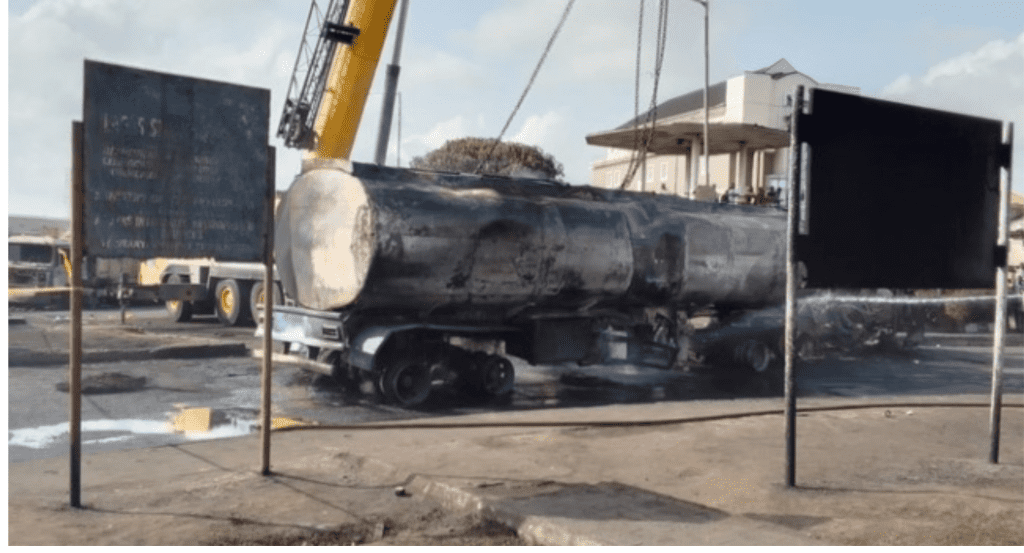The Nigerian government has announced a nationwide ban on 60,000-litre fuel tankers from operating on roads, effective March 1, 2025. The move, led by the Nigerian Midstream and Downstream Petroleum Regulatory Authority (NMDPRA), aims to curb the rising cases of petrol tanker accidents and explosions across the country.
The decision follows concerns over the safety risks posed by these high-capacity tankers, which have been linked to multiple fatal crashes and fire incidents. According to the NMDPRA, enforcing this ban will reduce the frequency and severity of accidents while ensuring compliance with road safety regulations.
During a stakeholders’ meeting in Abuja, NMDPRA Chief Executive, Farouk Ahmed, emphasized that the ban aligns with global best practices for fuel transportation. He urged petroleum marketers and transporters to transition to smaller, safer tankers to prevent further disasters.
The Federal Road Safety Corps (FRSC) and other regulatory agencies have been directed to enforce the ban strictly. Transport companies and depot operators have also been instructed to comply or face penalties.
The policy has drawn mixed reactions from industry players. While some marketers argue that it could increase transportation costs and affect fuel distribution, safety advocates have welcomed the move as a necessary step to protect lives and property.
With the implementation deadline approaching, authorities are expected to roll out monitoring measures to ensure strict adherence to the ban.




















